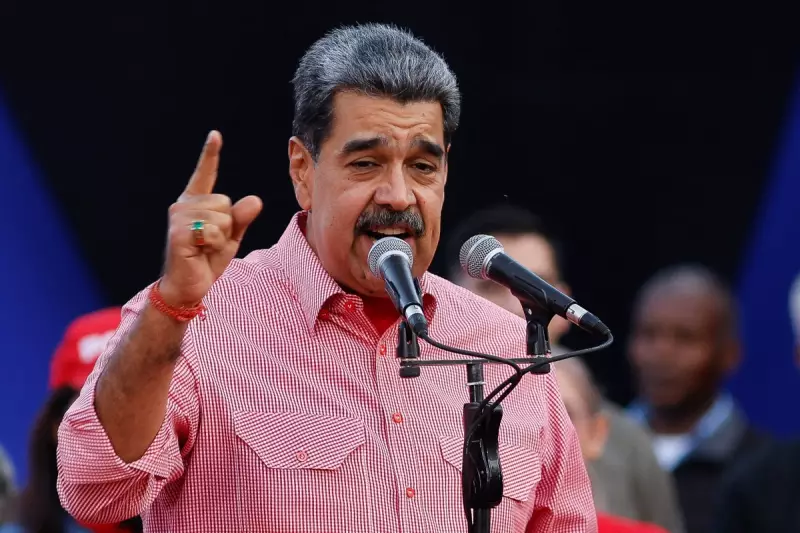
The administration of US President Donald Trump is significantly escalating its campaign against Venezuelan leader Nicolás Maduro, with plans to formally designate the Cartel de los Soles as a Foreign Terrorist Organisation. This move, scheduled for Monday, represents a major intensification of Washington's efforts to combat drug trafficking into the United States and increase pressure on the Caracas government.
A New Front in the Pressure Campaign
This planned designation marks the newest step in the Trump administration's multifaceted pressure campaign. US Secretary of State Marco Rubio previously accused the Cartel de los Soles, which translates to the Cartel of the Suns, of being "responsible for terrorist violence" throughout the Western Hemisphere. The decision comes as President Trump evaluates a range of options regarding Venezuela, including potential military action, which he has not ruled out despite mentioning the possibility of talks with Maduro.
Land strikes or other military actions would represent a major expansion of an operation that has already included a substantial military buildup in the Caribbean Sea. This operation has involved striking boats accused of drug trafficking, resulting in the deaths of more than 80 people.
Understanding the 'Cartel of the Suns'
The term Cartel de los Soles originated in the 1990s among Venezuelans to describe high-ranking military officers who had grown wealthy from drug-running. The "suns" in the name refer to the epaulettes on the uniforms of these senior officers. Under the late President Hugo Chávez and subsequently under Maduro, as corruption spread nationwide, the term's usage broadened loosely to include police, government officials, and illicit activities like illegal mining and fuel trafficking.
In 2020, during Trump's first term, the US Justice Department elevated this umbrella term by indicting Venezuela’s leader and his inner circle on narcoterrorism charges, formally defining it as a Maduro-led drug-trafficking organisation. However, experts like Adam Isaacson of the Washington Office on Latin America caution that it is not a traditional, hierarchical group. "It's not like a group that people would ever identify themselves as members. They don't have regular meetings," Isaacson stated.
Broader Implications and Escalating Tensions
The terrorist label, until this year, was reserved for groups like Islamic State or al-Qaida that use violence for political ends. The Trump administration began applying it to Latin American criminal organisations in February, designating eight groups, including the Tren de Aragua gang and the Sinaloa cartel, which US authorities allege received material support from Maduro's cartel.
US Defense Secretary Pete Hegseth indicated that designating the Cartel de los Soles would provide a "whole bunch of new options to the United States" for dealing with Maduro, though he declined to specify what those are. "So nothing is off the table, but nothing's automatically on the table," he remarked in an interview.
The 2020 indictment alleges that Maduro, along with Interior Minister Diosdado Cabello and Defense Minister Vladimir Padrino López, conspired with Colombian rebels for years "to flood the United States with cocaine" and use the drug trade as a "weapon against America." The US Justice Department has since doubled the reward for information leading to Maduro's arrest to $50 million.
Maduro has consistently denied all charges, insisting the US is building a false narrative to force him from power. He points to a United Nations report that, according to his government, shows only 5% of the cocaine produced in Colombia attempts to move through Venezuela. The US Treasury Department imposed sanctions on the cartel in July, accusing Maduro and his allies of bending state power to assist in trafficking narcotics to the US.
As the US military presence continues in the Caribbean, the situation remains highly volatile, with the Trump administration signalling it finds it difficult to see a scenario where Maduro remaining in power is an acceptable outcome.





